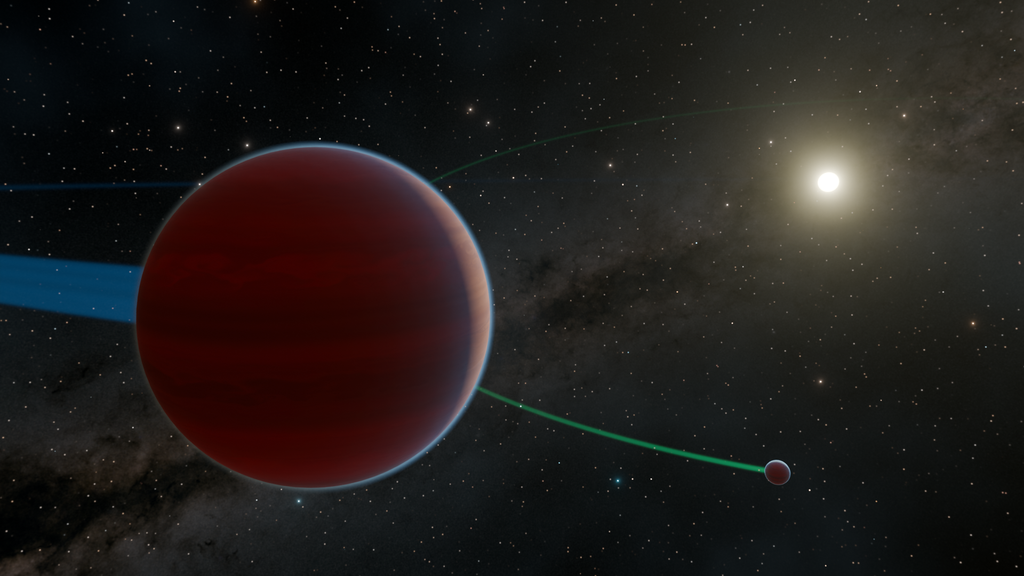CAPE CANAVERAL, Fla. – The second demonstration mission for NASA’s Commercial Orbital Transportation Services (COTS) program is under way as SpaceX’s Falcon 9 rocket and Dragon spacecraft lifted off Tuesday from Cape Canaveral Air Force Station in Florida at 3:44 a.m. EDT.
“I want to congratulate SpaceX for its successful launch and salute the NASA team that worked alongside them to make it happen,” NASA Administrator Charles Bolden said. “Today marks the beginning of a new era in exploration; a private company has launched a spacecraft to the International Space Station that will attempt to dock there for the first time. And while there is a lot of work ahead to successfully complete this mission, we are certainly off to good start. Under President Obama’s leadership, the nation is embarking upon an ambitious exploration program that will take us farther into space than we have ever traveled before, while helping create good-paying jobs right here in the United States of America.”
The Dragon capsule will conduct a series of checkout procedures to test and prove its systems, including the capability to rendezvous and berth with the International Space Station. On Thursday, May 24, Dragon will perform a flyby of the space station at a distance of approximately 1.5 miles to validate the operation of sensors and flight systems necessary for a safe rendezvous and approach. Live NASA TV coverage beginning at 2:30 a.m.
Following analysis of the flyby by NASA and SpaceX managers, the Dragon capsule will be cleared to rendezvous and berth with the space station on Friday, May 25, marking the first time a commercial company has attempted this feat. The Expedition 31 crew on board the station will use the orbiting complex’s robotic arm to capture Dragon and install it on the bottom side of the Harmony node. NASA TV will provide live coverage beginning at 2 a.m.
“This flight is an important milestone as NASA and SpaceX develop the next generation of U.S. spacecraft to carry the critically important experiments, payloads and supplies to our remarkable laboratory in space,” said William Gerstenmaier, associate administrator for NASA’s Human Exploration Operations Directorate at the agency’s Headquarters in Washington.
SpaceX and Orbital Sciences, which will perform its own test flight later this year, have been working under NASA’s COTS program, which provides investments to stimulate the commercial space industry in America. Once the companies have successfully completed their test flights, they will begin delivering regular cargo shipments to the station.
“NASA is working with private industry in an unprecedented way, cultivating innovation on the path toward maintaining America’s leadership in space exploration,” said Philip McAlister, director for NASA’s Commercial Spaceflight Development.
In parallel to COTS, NASA’s Commercial Crew Program is helping spur innovation and development of new spacecraft and launch vehicles from the commercial industry to develop safe, reliable and cost-effective capabilities to transport astronauts to low Earth orbit and the space station.
NASA also is developing the Orion spacecraft and Space Launch System (SLS), a crew capsule and heavy-lift rocket that will provide an entirely new capability for human exploration beyond low Earth orbit. Designed to be flexible for launching spacecraft for crew and cargo missions, SLS and Orion will expand human presence beyond low Earth orbit and enable new missions of exploration across the solar system.
For up-to-date SpaceX mission information and a schedule of NASA TV coverage, visit:
For NASA TV downlink information, schedules and links to streaming video, visit:
For more information about NASA’s commercial space programs, visit:
https://www.nasa.gov/exploration/commercial
For an interactive overview of NASA’s commercial space programs, visit:
https://www.nasa.gov/externalflash/commercializingspace
For an interactive overview of the future of American human spaceflight, visit:
https://www.nasa.gov/externalflash/human_space
– end –
text-only version of this release
NASA press releases and other information are available automatically by sending a blank e-mail message to hqnews-subscribe@mediaservices.nasa.gov. To unsubscribe from this mailing list, send a blank e-mail message to hqnews-unsubscribe@mediaservices.nasa.gov.
Back to NASA Newsroom | Back to NASA Homepage
Trent J. Perrotto
Headquarters, Washington
202-358-0321
trent.j.perrotto@nasa.gov
George H. Diller
Kennedy Space Center, Fla.
321-867-2468
george.h.diller@nasa.gov
Josh Byerly
Johnson Space Center, Houston
281-483-5111
josh.byerly@nasa.gov























